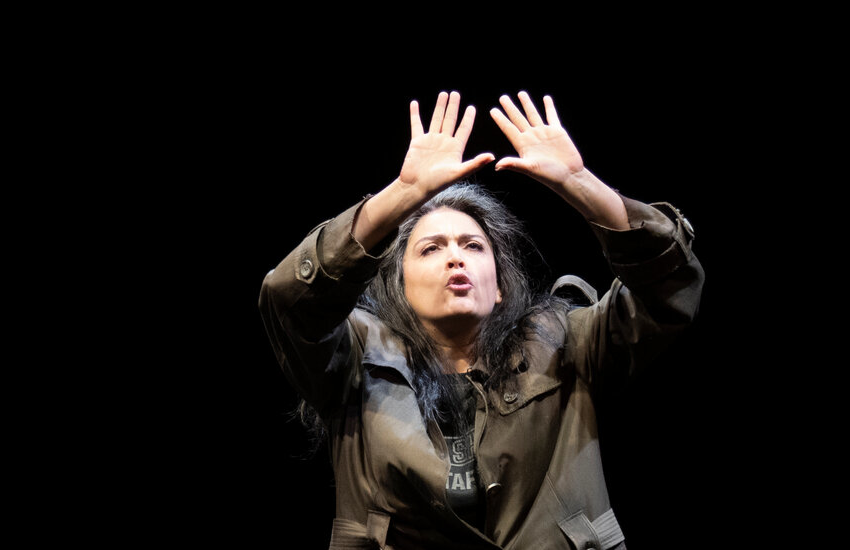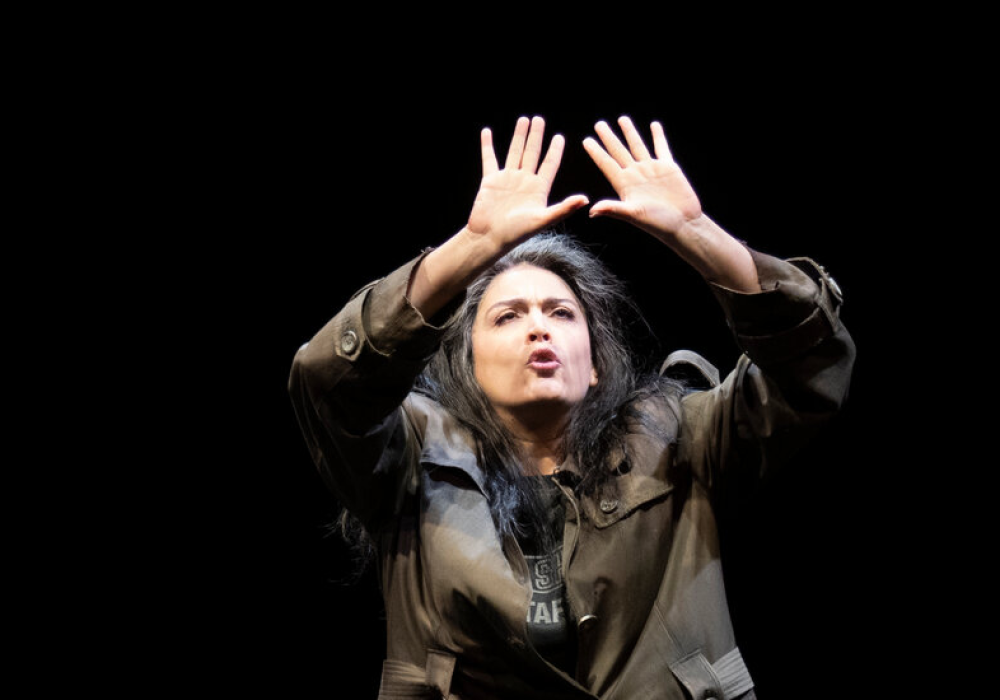That was always a bit twee, but today it’s also troublesome. The self-consciously cute Trudy, who claims to be chaperoning a bunch of aliens as they explore the byways of human society, may no longer be such a laughable figure, despite the umbrella hat she wears as a kind of interstellar satellite dish. Homelessness, which in Reagan-era New York City seemed to be a temporary aberration, has since curdled into something more like a structural disaster, making a permanent underclass of economic and mental health victims.
Tomlin got around the problem, if it was one then, by taking a breezy approach, preserving the rhythms of the punch lines at all costs. She had, after all, become famous on “Rowan & Martin’s Laugh-In,” a loosey-goosey, mile-a-minute variety show.
But Strong’s ability to create and sustain outré characters who nevertheless remain fundamentally believable — a skill developed over 10 seasons on “Saturday Night Live” — works against our comfort in her New York stage debut. It’s harder to laugh at her Trudy, a figure of pathos with a squinty tic and a hunched gait that never lets you forget she is shadowed by danger.
That commitment to at least a nub of naturalism keeps stepping on the jokes; the night I saw the play, a majority of the laughter seemed to come in response to the uncannily timed sounds of zippers zipping, bottle tops popping and water beds sloshing. (The sound design is by Elisheba Ittoop.) Otherwise Silverman’s staging seems to suggest we are in a liminal, performative space, with no set to speak of and with Strong (like Tomlin in the original play, but not the awkward 1991 movie) changing costumes only minimally. And though the lighting (by Stacey Derosier) helps separate the emotions, Strong’s voices are not yet ideally distinct.
But just as I began to wonder whether I had misremembered what Trudy calls “the goosebump experience” — the feeling you get when moved by art — “Intelligent Life” pulled itself together. Dispensing with the variety format, and giving Trudy a 30-minute rest, the second half is mostly devoted to the story of three friends living through second-wave feminism, from the founding of the National Organization for Women to the failure of the Equal Rights Amendment. Edie is the militant one, with “Spanish moss” under her arms. Marge is the cynic: “Honey, you couldn’t be more antiwar,” she tells Edie. “But if it weren’t for Army surplus, you’d have nothing to wear.”
And Lyn is the one caught in between, trying to be both Edie and Marge while also being a wife, a mother of boys, a rape hotline operator and a power-dressing P.R. executive. As the quick-take grievances of the earlier characters, however funny, give way to the ordinary wear-and-tear on women trying to function honorably in a sexist society, the play achieves, and Strong fulfills, the promise of the premise.
That promise is paradoxical: In offering a pull-no-punches satire of self-involved humans, it is nevertheless filled with pity for their disappointments. But instead of seeing that as a fault, perhaps it’s better to say that by finally realizing the need to be “more specific,” “Intelligent Life” eventually replaces the cheap kind of uplift with the real deal. Trudy calls the emotional workout of human life “awerobics.” By the time you get to the play’s killer last line, you may call it a true goosebump experience.













